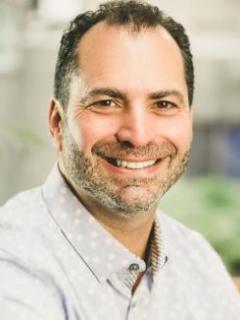Laser acupuncture treatments can offer new hope for for couples coping with ageing-related reproductive problems whether trying to conceive naturally or with IVF.
Until recently, Western reproductive medicine has traditionally maintained that ageing and declining egg quality is an irreversible process. However, ground-breaking research with low level light therapy (LLLT) conducted in Denmark and Japan is showing that it may be possible to improve egg quality, slow down the ageing process and significantly improve fertility in women. The studies show that low level laser therapy (LLLT) used on acupuncture points on the neck and over the abdomen appears to enhance mitochondrial activity and ATP production, increase blood flow and helps to reduce oxidative damage.
All our cells are powered by little structures called mitochondria. Eggs have about 200 times more mitochondria than any other cell. When eggs are developing, they use a tremendous amount of energy. And early embryo division and implantation requires lots of energy. After 35 years, the mitochondria wear down. At age 40, nine out of 10 eggs are abnormal.
Studies show that the mitochondria of older eggs is capable of producing significantly less ATP, which is the source of cellular energy. This has a significant impact on fertility, as the rate of division and successful implantation of embryos has more to do with how much energy (ATP) than with maternal age per se. Consequentially, the capacity of the cold laser to improve the ATP production of eggs has a potentially dramatic effect on their viability.
Increasing energy level (ATP) in the cells, improved blood circulation, softening of scar tissue and a reduction in inflammation. These factors are all beneficial to female reproduction in general and to the receptivity of uterine lining.
The recent studies in Japan and clinical results in Denmark have delivered very promising results in this direction. The Danish report showed that LLLT had a pregnancy rate of 66% success for women after at least 4 years of failure with other ART methods. LLLT studies have also pointed to the efficacy of laser treatment in raising the quality of the male partner’s semen in particular motility.
Similarly, the Japanese studies have shown a connection between improved fertility and laser therapy, concluding that even in low doses, laser therapy can help improve the woman’s chances of conception. Under the direction of Dr Toshio Ohshiro at Sanno Hospital, an extended trial on LLLT was performed in 701 infertile patients, 156 (22.3%) of whom became pregnant. This resulted in a successful live birth rate in over half (50.1%) of those pregnancies.
This lecture will discuss why laser (LLLT) for fertility can provide patients with the best chance of reaching their peak fertility and having a healthy baby.
Learning Objectives
1. Review current research of low level laser therapy for fertility
2. Understand The 4 main mechanisms of laser acupuncture for fertility
3. The Optimal Dosage and duration of treatments using laser for fertility.
4. Case studies to demonstrate the benefit of laser (LLLT) for fertility.

Chair of the Integrative Fertility Symposium
Dr. Lorne Brown B.Sc., CPA, Dr.TCM, FABORM, CHt, is the Clinical Director of Acubalance Wellness Centre, and the founder of Healthy Seminars (formerly Pro D Seminars and Medigogy), and the Integrative Fertility Symposium.
After a career as a Chartered Professional Accountant (CPA), Lorne received his Doctor of Traditional Chinese Medicine at Vancouver’s International College of Traditional Chinese Medicine, Lorne has postgraduate training in Clinical Hypnosis, Infertility, Cold Laser Therapy and Functional Medicine Dr Brown has successfully integrated his entrepreneurial skills and background as a CPA with his passion for Chinese Medicine establishing a very successful fertility practise (www.acubalance.ca) and pioneering online continuing education through Healthy Seminars (www.healthyseminars.com) as well as the Integrative Fertility Symposium (www.ifsymposium.com) held in Vancouver for acupuncturists and naturopaths worldwide.
Lorne published a practice management book for TCM practitioners called Missing the Point: Why Acupuncturists Fail and what they Need to Know to Succeed www.missingthepointbook.com
